White cabbage has always been an important winter product. It stores well, is full of vitamin C, but also firm with an authentic flavor. Consumers, who these days can get fresh vegetables all year round, are increasingly choosing pointed cabbage, which tastes milder and has a less tight texture. They are much easier to cut and are very versatile.
Known for white cabbage varieties with excellent storability, Bejo is now also introducing a pointed cabbage with that characteristic: Bejo 3518. Bejo has also developed a 'flat' alternative: the flat white cabbage variety Bejo 3517. These are breakthroughs Bejo is proud of and which were, of course, in the spotlight at their Open Days 2022.
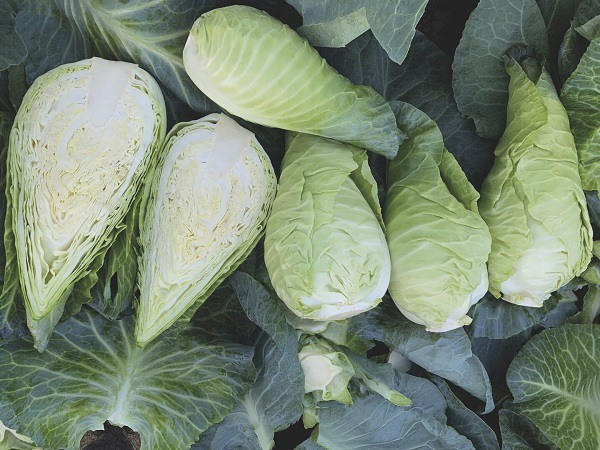 BEJO 3518 pointed cabbage variety.
BEJO 3518 pointed cabbage variety.
The new Bejo 3518 pointed cabbage has thick leaves and unique storage qualities. You can store it, problem-free, until mid-March. Bejo 3518 does not crack easily, and with more growing days than other varieties, it can easily absorb growth spurts without becoming oversized. The optimum harvest weight for proper proportions is 1.2 kg. The variety is healthy in the field and highly thrip resistant.
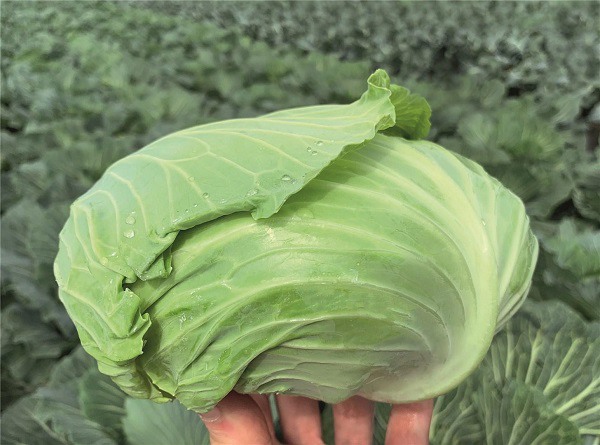 BEJO 3517 flat white cabbage.
BEJO 3517 flat white cabbage.
Bejo breeders had previously succeeded in developing flat white cabbage marketed under the name, Coolwrap®. This cabbage has square-shaped leaves and a mild flavor and can be used for gluten-free wraps, sushi, or as part of a healthy sandwich or salad. The concept has been successful with Dutch and Polish consumers, among others.
The new Bejo 3517 variety is a 'more common' flat white cabbage with nice internal layers and a smooth dark green appearance. It has a distinctive soft texture and a slightly sweet cabbage flavor. It is a good alternative to pointed cabbage in the fresh market. For growers, it is a labor-friendly, easy-to-harvest crop suitable for early, summer, and storage crops.
These cabbage highlights are but a small sample of everything Bejo has on show during its open days. From Tuesday, September 27 to Saturday, October 1, vegetable growers and chain partners from around the world came to the Netherlands to learn about the new Bejo varieties and concepts. There was plenty of room to discuss market developments, opportunities, and challenges.
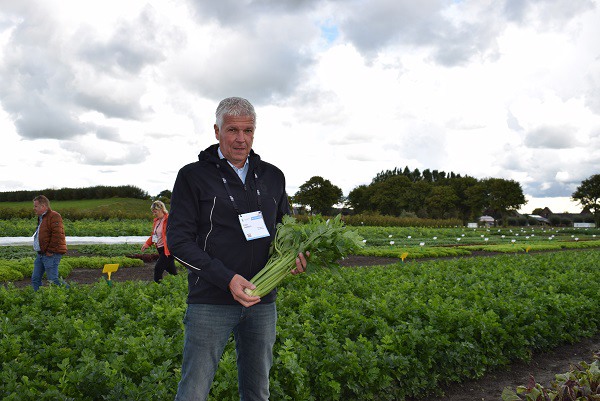 Peter Gabriels, Bejo's Benelux director, shows a new robust celery variety, Cumbia, which is very Septoria resistant, has healthy foliage, and is suitable for flow packing, processing, and sticks.
Peter Gabriels, Bejo's Benelux director, shows a new robust celery variety, Cumbia, which is very Septoria resistant, has healthy foliage, and is suitable for flow packing, processing, and sticks.
Robust varieties
Bejo focuses strongly on breeding hardy varieties that generate good yields under diverse climatic conditions. That has always been vital in organic cultivation. In the 1990s, Bejo was one of the first breeders to successfully fully integrate organic into their operations.
"In several European countries, organic seed sales have been growing faster than the conventional segment for years. We're increasingly focusing on sustainability with both organic and conventional varieties. Here, the combination of organic and conventional seed growers leads to wonderful hybrids," begins Pieter Gabriëls, Benelux director at Bejo.
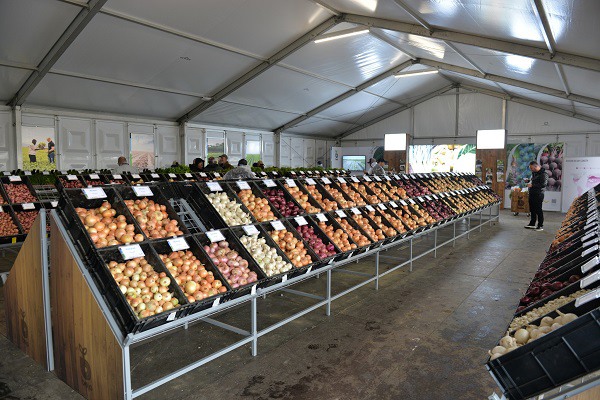
Robust onion varieties, including Hylander, Redlander, and the shallot, Innovator, on display.
“Recently, several new varieties have come onto the market, many with cross-bred disease resistance. That includes Cumbia, a celery that's very Septoria resistant with healthy foliage and suitable for flow packing, processing, and sticks. And, of course, the yellow onion Hylander, the red onion Redlander, and the shallot Innovator, all with high resistance to mildew and now proven in the market for both organic and conventional growers."
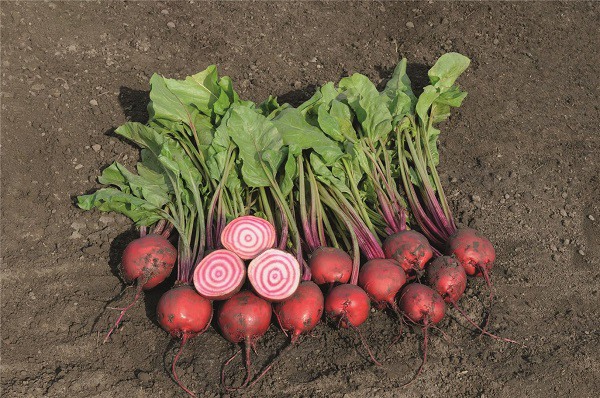 Anello.
Anello.
As a beet specialist, Bejo introduced varieties such as Bazzu (Bejo 3395), an intermediately Rhizomania-resistant red beet. It can be sold fresh or to the industry, stores well, and tolerates all kinds of leaf diseases well. For the hospitality industry, Beljo developed the Anello, a Chioggia beet with uniform rings, smooth skin, and strong spot tolerance.
Inspiration for the chain and consumers
Bejo has been inspiring growers and chain partners for years by demonstrating new uses for vegetables and innovative vegetable concepts. At the open days, partners from the whole chain extensively discussed these ideas, built on the essential pillars of flavor, health, and convenience. It is hoped these partners will adopt these concepts. "Concept introduction, just like seed breeding, is a long-term process. Eventually, it bears fruit," says Pieter.
"Ten years ago, Bejo introduced the snack carrot at Fruit Logistica; now a common product at all retailers." Snacking is even more about the vegetable's flavor, and Bejo has long invested in flavor research that scientifically supports distinctive tasting varieties. "Mokum is a standard snack carrot variety when it comes to flavor. Adana and Aranka, too, are promising, with some colored varieties selected for this segment: Rainbow and Purple Haze."
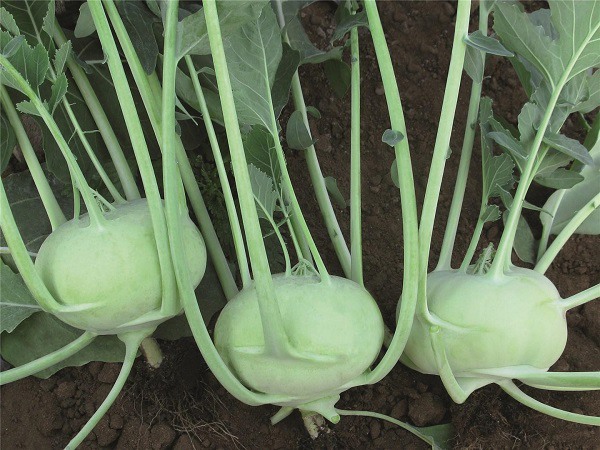 The Konanis kohlrabi is a promising snack vegetable for the Netherlands.
The Konanis kohlrabi is a promising snack vegetable for the Netherlands.
Kohlrabi is a popular snack vegetable in Germany but is hardly known in the Netherlands and Belgium. Daniëlle Bruin, Food & Value Chain Manager at Bejo: "Our Konanis variety is delicious with soft, juicy flesh and a crunchy texture, tasting slightly melony. It's rich in vitamin C, which is good for your health, but also keeps the kohlrabi from discoloring after you slice it. Many German children get kohlrabi, instead of an apple, in their school lunchbox."
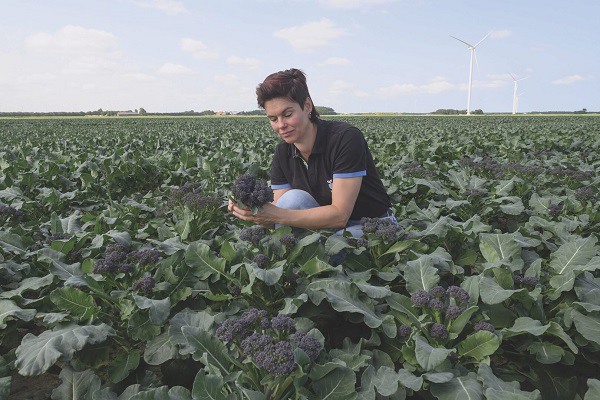 Daniëlle Bruin wants to use Redi® to shake up the market.
Daniëlle Bruin wants to use Redi® to shake up the market.
Shake up
Bejo wants to shake up the market with the Redi® (purple sprouting broccoli) concept. This new retail vegetable was nominated for the Innovation Hub Awards at Fruit Attraction in 2020. "Redi® purple sprouting broccoli is a unique broccoli originating from the Netherlands and Spain. You can eat the flowers and thin stems, so there's no food waste. You can eat everything together, raw, cooked, or boiled," says Daniëlle.
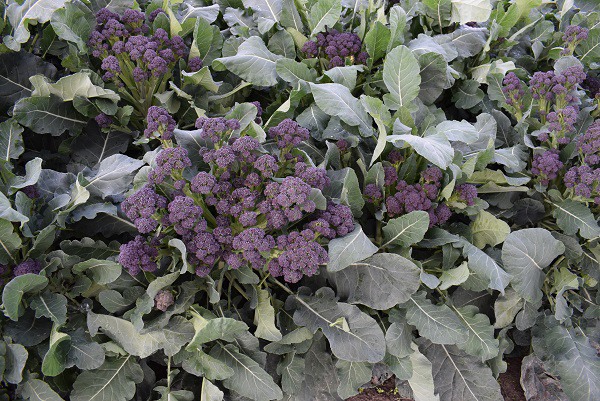
“Redi® is also super healthy. It contains healthy ingredients like antioxidants, vitamin C, and a lot of anthocyanins, which differentiates, in an even more positive way, from the already very healthy regular broccoli," she explains. Its year-round availability will contribute to its success; Redi® is easy to grow in Spain and the Netherlands.
Also, it is easy to harvest, so is a labor-friendly variety. "For a concept to succeed, the grower, retailer, consumer triangle is critical. Redi® is catching on well in retail, especially in the UK, where it's already well-known. This labor-friendly variety will make growers more interested in cultivating it," Pieter concludes.
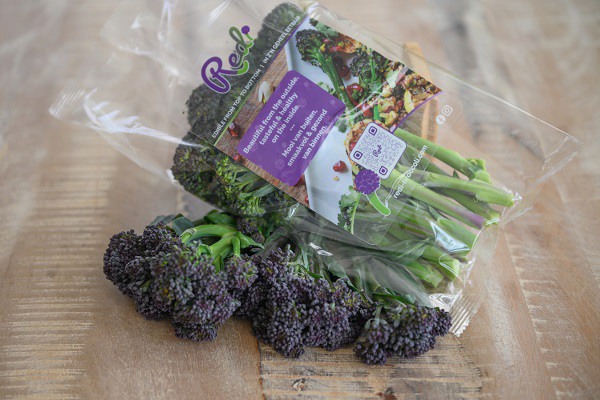
In the Netherlands, Redi® is available at stores like the hospitality wholesaler, Hanos.
For more information: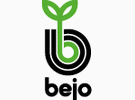 Bejo
Bejo
Email: info@bejo.nl
Website: www.bejo.nl
